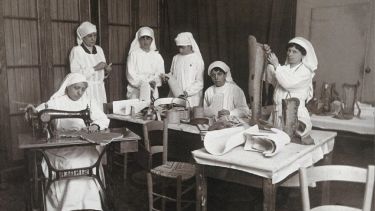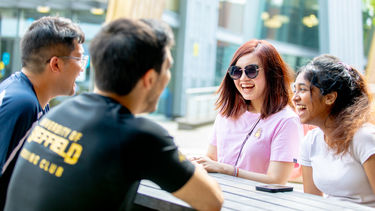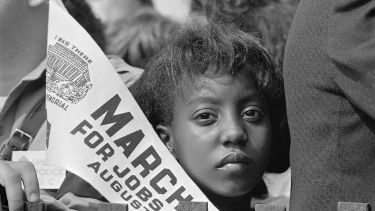History resources for schools
Welcome to the Department of History’s resources for teachers. Here you will find a huge number of topics and resources which highlight the range of expertise found in the department.

We start in Rome in late antiquity and move through time and place, covering topics including the Aztecs, the English revolution, enslavement, the Russian revolutions, Facism, and anti-apartheid movement. Our resources are organized chronologically, with a separate section more focused on the study of history itself. It corresponds to the curricula as closely as possible and includes not only written blog posts but also a range of audio, video, and material for places like History Extra, History Today, and the Historical Association. We hope this resource becomes a place that teachers can come for information on the historical periods they are teaching, while including resources to introduce different topics like disability history, LGBTQIA history, gender history, and history from below.
- In this podcast series, Charles West is joined by experts from across Europe and the world to explore the eleventh century in European history. You can also read Dr West’s ‘Eight turning points in medieval European history’.
- Danica Summerlin talks Thomas Becket with Melvyn Bragg and other guests on BBC Radio 4’s ‘In Our Time’
- Were the Aztecs ‘brutal and bloodthirsty’? Caroline Dodds Pennock looks at ‘The real Aztecs’ in History Extra. Dr Dodds Pennock also discusses European attitudes towards indigenous peoples of the Americas in the sixteenth century ‘Valladolid debate’ on BBC Radio 4’s ‘In Our Time’.
- In this lecture, Michael Braddick examines John Lilburne and how the seventeenth century English Revolution ushered in a new phase in British politics. Prof. Braddick also discusses his book on Lilburne here. For more on early modern England, step into the everyday lives of Londoners and explore minority communities in London or the emergence of coffee houses.
- What kind of work did enslaved people do in the nineteenth century US south, besides agricultural labour? Rosie Knight explores enslaved African American ‘nurses’ for ‘Nursing Clio’. For more on slavery in the nineteenth century US, see Andrew Heath’s discussion of the Emancipation Proclamation.
- Does humanitarianism have a history? Emily Baughan discusses the ‘history of helping far-off peoples’, from the abolition of slavery to the 1983-1985 Ethiopian famine:
- Esme Cleall explores the history of ‘freak shows’ in Victorian Britain and what these reveal about then-contemporary attitudes to disability, race, and gender.
- Miriam Dobson asks ‘When did the Russian Revolution end?’ for ‘History Matters’.
- What role did women play in fascist movements? Julie Gottlieb discusses ‘feminine fascism’ in inter-war Britain on the ‘Yeah Nah Pasaran’ podcast.
- Tehyun Ma explores the interwoven fates of China and North Korea since their founding in 1948-9.
- How have historians’ interpretations of the Civil Rights movement differed? Andrew Heath and Sarah Miller-Davenport provide ‘a quick guide to interpreting the long Civil Rights movement’.
- What is interesting about the Cold War? Eirini Karamouzi considers changing interpretations and approaches to the history of the Cold War for the Historical Association. For more on the Cold War, consider the role Hawai’i played in improving the U.S. image around the globe with Sarah Miller-Davenport, or the concept and character of the conflict itself in this blog post by Benjamin Ziemann.
- Did 1960s Britain witness a ‘youthquake’? Adrian Bingham discusses the changing political power of youth.
- In the struggle against apartheid, why did the African National Congress (ANC) and its allies move away from the exclusive use of non-violent tactics? Simon Stevens discusses ‘the turn to sabotage’ in this journal article.
The study of history
- What does ‘Eurocentrism’ mean for historians studying and teaching European history? A conversation between Dina Gusejnova and Charles West.
- Does the passing of time really make us more impartial? Adrian Bingham explores the history of the miners’ strikes.
- What language or terminology should we use when referring to people of the past? Chris Mowat discusses ‘Why I Use Modern LGBTQ+ Terminology For The Pre-Modern Past’
You can read blog posts on a wide-range of topics over at History Matters, organised here by period, place, and theme:

International Merit Scholarships
We offer a generous package of financial support for international students including 75 undergraduate scholarships worth £10,000 towards the annual tuition fee and 125 postgraduate taught scholarships worth £5,000 towards the tuition fee. Applications are now open for existing offer holders.

